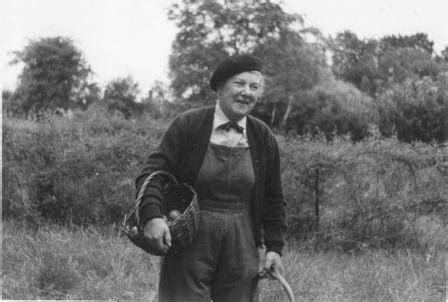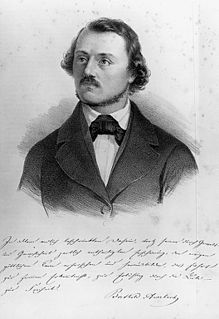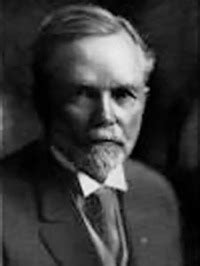A Quote by Ruth Pitter
Vain vision! when the changing world each day Sees some such lordly pleasance pass away; When the mere stripling knows my symbols all Worn tokes, heaven hypothetical, Nature indifferent, and the dreams of men Figments of longing which we must condemn. Yet keep these plants, O Man! a kinder time May yet be moved by them to better rhyme, Or moved, like me, to place his pleasure low, On the firm Earth, whence Men and Blossoms grow.
Quote Topics
Away
Better
Blossoms
Changing
Condemn
Day
Dreams
Each
Each Day
Earth
Figments
Firm
Grow
Heaven
His
Hypothetical
Indifferent
Keep
Kinder
Knows
Like
Like Me
Longing
Low
Man
May
Me
Men
Mere
Moved
Must
Nature
Pass
Place
Plants
Pleasure
Rhyme
Sees
Some
Symbols
Them
Time
Vain
Vision
Whence
Which
World
Worn
Related Quotes
What I have always loved most in men is imperfection. I get moved by the wrinkles on the throat of a man. It makes me love him more. I think it is sad that more women don't take the chance that maybe men will be moved by seeing the chin a little less firm than it used to be, that a man will be more in love with his wife because he remembers who she was and sees who she is and thinks, God, isn't that lovely that this happened to her. And be moved by life telling its story there.
It is by sympathy we enter into the concerns of others, that we are moved as they are moved, and are never suffered to be indifferent spectators of almost anything which men can do or suffer. For sympathy may be considered as a sort of substitution, by which we are put into the place of another man, and affected in many respects as he is affected.
These are the things before me. And as I stand here at the door of glory, I look behind me for the last time. I look upon the history of men, which I have learned from the books, and I wonder. It was a long story, and the spirit which moved it was the spirit of man’s freedom. But what is freedom? Freedom from what? There is nothing to take a man’s freedom away from him, save other men. To be free, a man must be free of his brothers. That is freedom. This and nothing else.
Aestheticism and radicalism must lead us to jettison reason, and to replace it by a desperate hope for political miracles. This irrational attitude which springs from intoxication with dreams of a beautiful world is what I call Romanticism. It may seek its heavenly city in the past or in the future; it may preach 'back to nature' or 'forward to a world of love and beauty'; but its appeal is always to our emotions rather than to reason. Even with the best intentions of making heaven on earth it only succeeds in making it a hell - that hell which man alone prepares for his fellow-men.
If idioms are more to be born than to be selected, then the things of life and human nature that a man has grown up with--(not that one man's experience is better than another's, but that it is 'his.')--may give him something better in his substance and manner than an over-long period of superimposed idiomatic education which quite likely doesn't fit his constitution. My father used to say, 'If a poet knows more about a horse than he does about heaven, he might better stick to the horse, and some day the horse may carry him into heaven'
He is not the soul of Nature, nor any part of Nature. He inhabits eternity: He dwells in a high and holy place: heaven is His throne, not his vehicle, earth is his footstool, not his vesture. One day he will dismantle both and make a new heaven and earth. He is not to be identified even with the 'divine spark' in man. He is 'God and not man.
Criticism is a study by which men grow important and formidable at very small expense. The power of invention has been conferred by nature upon few, and the labour of learning those sciences which may, by mere labour, be obtained, is too great to be willingly endured; but every man can exert some judgment as he has upon the works of others; and he whom nature has made weak, and idleness keeps ignorant, may yet support his vanity by the name of critic.
We in this country, in this generation, areby destiny rather than choicethe watchmen on the walls of world freedom. We ask, therefore, that we may be worthy of our power and responsibility, that we may exercise our strength with wisdom and restraint, and that we may achieve in our time and for all time the ancient vision of peace on earth, good will toward men. That must always be our goal, and the righteousness of our cause must always underlie our strength. For as was written long ago: except the Lord keep the city, the watchman waketh but in vain.
Nothing feebler than a man does the earth raise up, of all the things which breathe and move on the earth, for he believes that he will never suffer evil in the future, as long as the gods give him success and he flourishes in his strength; but when the blessed gods bring sorrows too to pass, even these he bears, against his will, with steadfast spirit, for the thoughts of earthly men are like the day which the father of gods and men brings upon them.
Some will protest that in a world with so much human suffering, it is something between eccentric and obscene to mourn a dog. I think not. After all, it is perfectly normal—indeed, deeply human—to be moved when nature presents us with a vision of great beauty. Should we not be moved when it produces a vision—a creature—of the purest sweetness?
If greatness of purpose, smallness of means, and astonishing results are the three criteria of a human genius, who could dare compare any great man in history with Muhammad? The most famous men created arms, laws, and empires only. They founded, if anything at all, no more than material powers which often crumbled away before their eyes. This man moved not only armies, legislations, empires, peoples, dynasties, but millions of men in one-third of the then inhabited world; and more than that, he moved the altars, the gods, the religions, the ideas, the beliefs and the souls.
We must see the face of the Lord .... There are things that God says to me that I know must take place. It doesn't matter what people say. I have been face to face with some of the most trying moments of men's lives when it meant so much to me if I kept the vision, and if I held fast to that which God had said. A man must be in an immovable condition. The voice of God must mean to him more than what he sees, feels, or what people say.




































